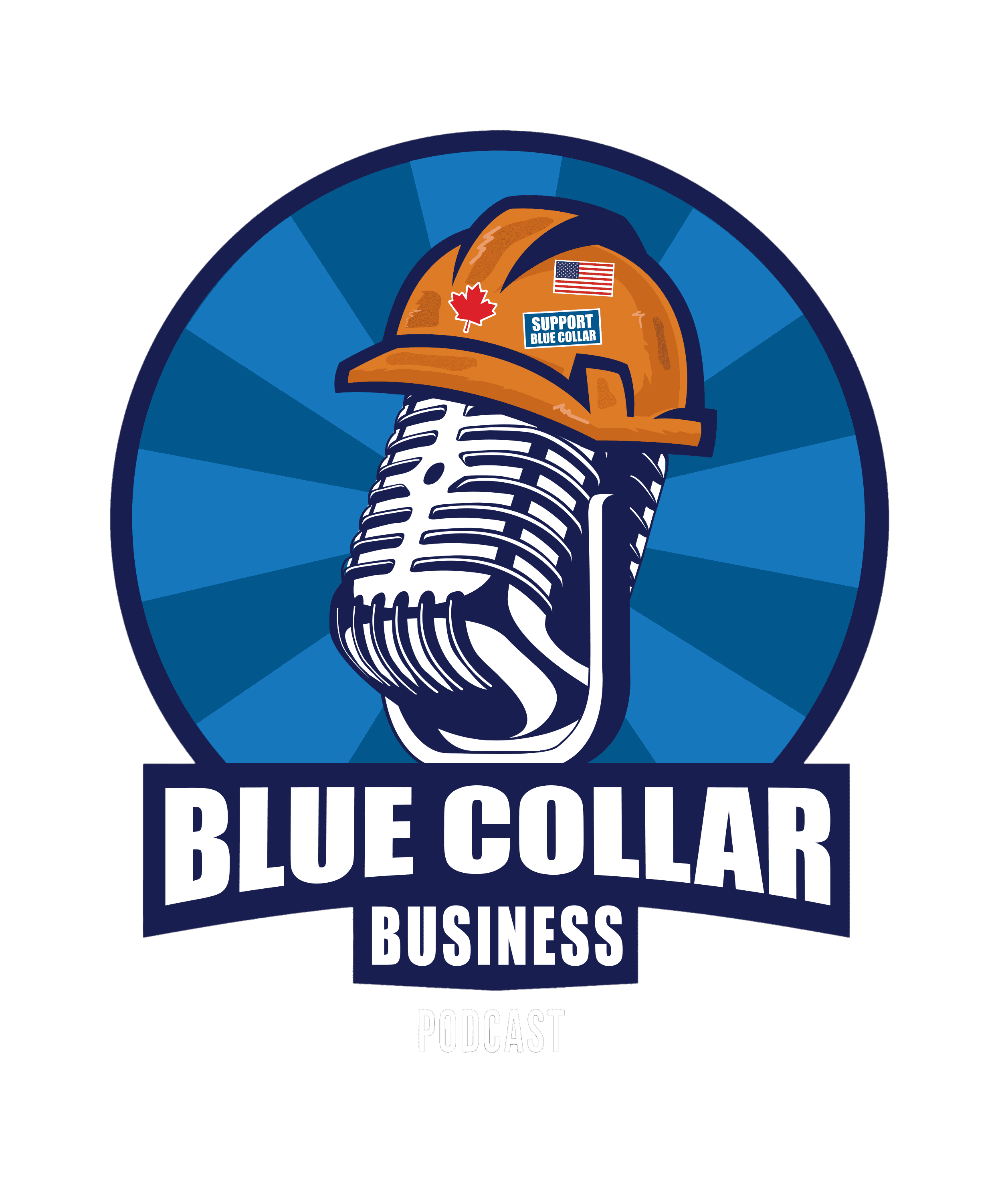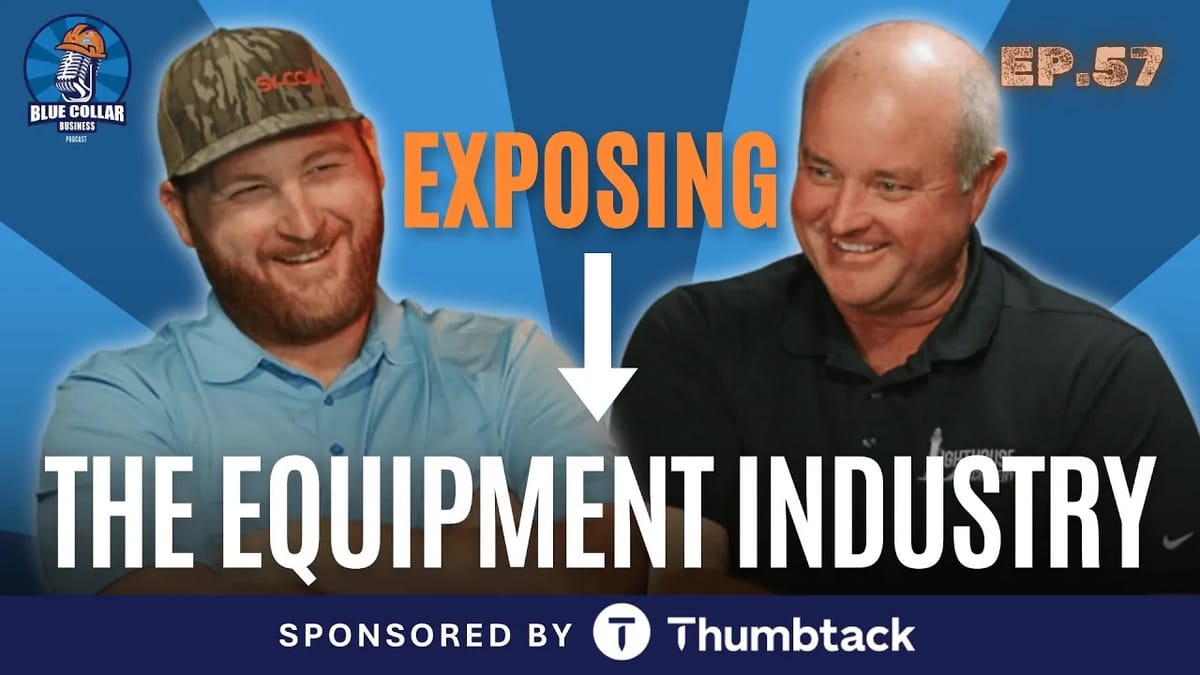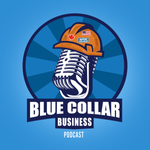Sam Light, owner of Lighthouse Machinery and a 25-year veteran of the heavy equipment industry, takes us behind the scenes of a market in transformation. With experience running dealerships across multiple states, Sam brings unparalleled insight into why he left the corporate world to create something that genuinely serves customers rather than shareholders.
The conversation reveals how the construction equipment industry has fundamentally changed over the last two decades. Experienced professionals with deep parts and equipment knowledge are retiring, while dealership networks increasingly departmentalize, preventing essential cross-training. When COVID hit, these structural weaknesses were catastrophically exposed, creating an opportunity for Sam to build a business addressing these gaps.
What makes Lighthouse Machinery truly unique is its approach to the parts business, creating a comprehensive database of parts availability across the continental US and becoming a crucial resource for the very dealerships they might appear to compete with. Sam shares how 60-70% of their parts business comes from dealers themselves, who often lack the experience or resources to source aftermarket solutions.
The discussion takes a fascinating turn when Sam details how restrictive dealership territories and proprietary diagnostic software are effectively holding equipment owners hostage. With service rates hitting $200/hour for often untrained technicians, the industry is ripe for disruption. Sam explains how recent tariff increases, sometimes jumping from 35% to over 100% overnight, are adding another layer of complexity to equipment procurement.
Whether you're managing a construction fleet, working within the dealership network, or simply fascinated by the mechanics of a changing industry, this episode provides a masterclass in identifying systemic problems and creating innovative solutions. Sam's parting wisdom for blue-collar workers feeling stuck will leave you inspired to push beyond artificial limitations.
Thumbtack
Stop spending all your time searching for weak leads. Book your personalized strategy session today!
Blue Collar Performance Marketing
Click the link above for a free marketing audit with insights to boost your blue collar business!
Disclaimer: This post contains affiliate links. If you make a purchase, I may receive a commission at no extra cost to you.
Follow and stay connected:
Never miss an update—follow, subscribe, and join the conversation!
More About this Episode
Fixing What’s Broken: How Lighthouse Machinery Is Reshaping the Heavy Equipment Industry
The heavy equipment industry is in the middle of a serious transformation, and not necessarily because it wants to be. The challenges in dealership networks, supply chain failures, rising tariffs, and a rapidly aging workforce are forcing the sector to evolve. Yet, in the midst of all that pressure, there are a few companies that aren’t just adapting, they’re leading the charge.
One of those companies is Lighthouse Machinery, founded by Sam Light, a U.S. Army veteran with over 25 years of experience in the heavy equipment game. Lighthouse Machinery isn’t just another name in the industry; it’s a business born out of frustration, built on customer trust, and powered by solutions that the industry has long ignored.
The Problem with the Traditional Dealership Model
If you’ve worked in construction or excavation for more than a minute, you know how frustrating it can be to deal with heavy equipment dealerships. Whether it's getting the wrong parts from an undertrained rep or waiting weeks for a simple repair because of internal red tape, many dealerships are stuck in outdated systems that no longer serve the customer.
Sam Light saw that firsthand after spending more than two decades running dealerships in Arkansas and the Carolinas. Over time, he watched seasoned veterans leave the industry, taking decades of knowledge with them, only to be replaced by green staff who lacked the training to provide real value to customers.
The dealership model, as he put it, became less about the customer and more about corporate shareholders. Departmental silos, lack of cross-training, and a broken supply chain only added fuel to the fire. Sam had seen enough. And during the chaos of the COVID-19 pandemic, he made a decision: it was time to build something better.
The Birth of Lighthouse Machinery
What started as a scrappy operation run out of Sam’s home quickly evolved into something far more significant. Lighthouse Machinery began with a mission to help contractors, not shareholders, by focusing on speed, availability, and most importantly, solutions.
The opportunity first came when OEMs and contractors started calling Sam for help liquidating idle inventory, especially when the oil fields crashed. Equipment was stacked up like firewood, but dealerships couldn’t sell across their territorial boundaries due to contractual restrictions. That’s where Lighthouse stepped in.
Sam started with a phone and a list of longtime contacts, the same kind of blue-collar relationships that most corporations have long forgotten how to value. One conversation at a time, Lighthouse began redistributing stranded equipment across the country, solving a real industry need.
But the company’s growth didn’t stop at equipment.
From Machines to Parts: Filling the Gaps that Dealerships Couldn’t
After the initial success in used equipment sales, one of Sam’s former colleagues pushed him to tackle another industry headache: parts.
Lighthouse Parts launched with the same core principle: be the easiest and most knowledgeable partner for customers to get what they need, fast. In a market where customers are often quoted 8 to 12 weeks for delivery on basic GET (ground engaging tools), that’s no small promise.
Within one month, Lighthouse sold $150,000 in parts, just from one experienced rep calling customers. That number only grew as more industry veterans joined the team, each bringing decades of hands-on knowledge that simply doesn’t exist at most dealerships anymore.
Here’s the twist: 60–70% of Lighthouse’s parts business now comes from dealerships themselves.
Why? Because many dealer parts departments don’t have the cross-trained expertise or inventory to respond quickly. When a customer asks for a part they don’t know how to source, especially something used or aftermarket, they now call Lighthouse.
And Lighthouse delivers.
Inventory Powered by Data, Not Guesswork
One of Lighthouse’s smartest innovations is how it builds its inventory. Instead of overstocking and hoping someone buys, they monitor inbound requests in real time. If multiple requests come in for the same part across different markets, the team springs into action, identifying where pockets of inventory exist and securing access before the big OEMs can catch up.
This dynamic inventory model is exactly what the industry needs: agile, responsive, and built on solving customer pain points. Whether it's a ripper heading to Alaska or a bucket shipped out same-day to a local crew, the focus is always on minimizing downtime and maximizing efficiency for the contractor.
Training the Next Generation (Because No One Else Is)
Another major challenge in the equipment industry is training. With the old guard retiring and fewer young people entering the trades, the knowledge gap is becoming a serious threat to productivity and safety.
Lighthouse has taken an active role in solving this, too. Sam and his team are building internal training systems, including video tutorials and hands-on learning, to ensure new hires can grow into the experts their customers need.
They’re also pushing for smarter, AI-powered tools to help customers troubleshoot issues in the field. Whether it’s integrating AI chat into service manuals or building out searchable fault code libraries, the goal is clear: empower the operator and reduce unnecessary service calls.
Breaking the Chains of Software Lockout
One of the most frustrating trends in heavy equipment is the software lockdown that comes with modern machines. Manufacturers now require proprietary tools just to diagnose or clear a fault code, and they’re charging contractors thousands for the privilege.
This has created a hostage situation, where owners can’t even perform basic maintenance without calling a dealer tech. And those dealer techs? Often untrained, overbooked, and expensive.
Sam’s take on this? “If I buy a machine, I should be able to work on it.”
Lighthouse supports legislation to break these digital chains and give equipment owners access to the software tools they need. In the meantime, they’re supporting a growing network of independent field service technicians who can offer top-notch service without the dealership markup.
Solving Problems the Dealers Won’t
Over and over again, Lighthouse has found opportunity by solving the problems dealerships refuse to fix. Whether it’s delivering used or reman parts in days instead of months, helping a customer source the exact bucket they need same-day, or building mega rippers for excavation jobs where blasting isn’t an option, Lighthouse is filling the cracks left behind by bloated dealer systems.
In one standout example, they sourced a 33,000 lb mega ripper for a Komatsu PC750, saving a customer from spending a fortune on drilling and blasting near sensitive infrastructure. They’ve even built a database of supplier specialties to streamline future orders.
And even with rising tariffs, complex import fees, and unpredictable shipping delays, Lighthouse keeps moving because they’ve built the relationships, systems, and trust that contractors rely on when time and money are on the line.
Blue Collar Doesn’t Mean Less Capable
Sam’s message to blue-collar workers is simple: you’re smarter than you think, and more capable than most people give you credit for. The heavy equipment industry has long relied on the intelligence and grit of blue-collar professionals, yet it often sidelines them in the name of corporate policy or outdated systems.
But that’s changing.
Companies like Lighthouse Machinery are leading the way by valuing experience over titles, solutions over red tape, and customers over shareholders. And in doing so, they’re building something the industry hasn’t seen in a long time: a business that actually works for the people who keep America moving.
If you’re in the trenches and tired of being told “that’s just how it is,” maybe it’s time to find a partner that doesn’t play by the old rules.
Check out Lighthouse Machinery at lhmpartsusa.com, follow them on LinkedIn, and see how real change is happening in the heavy equipment world, one machine, one part, and one solution at a time.



Member discussion: